Verb identification Writing Worksheets for Ages 5-7
6 filtered results
-
From - To
Discover our engaging Verb Identification Writing Worksheets designed specifically for children ages 5-7. These interactive activities help young learners recognize and understand verbs in an age-appropriate manner. Each worksheet features colorful illustrations and simple tasks that encourage creativity while reinforcing grammar skills. Children will delight in identifying action words through fun-filled exercises that enhance their writing and reading comprehension. Perfect for home or classroom use, these worksheets provide a solid foundation for language development, fostering enthusiasm for learning. Download now to incorporate exciting verb identification activities into your child's educational journey and boost their writing skills!
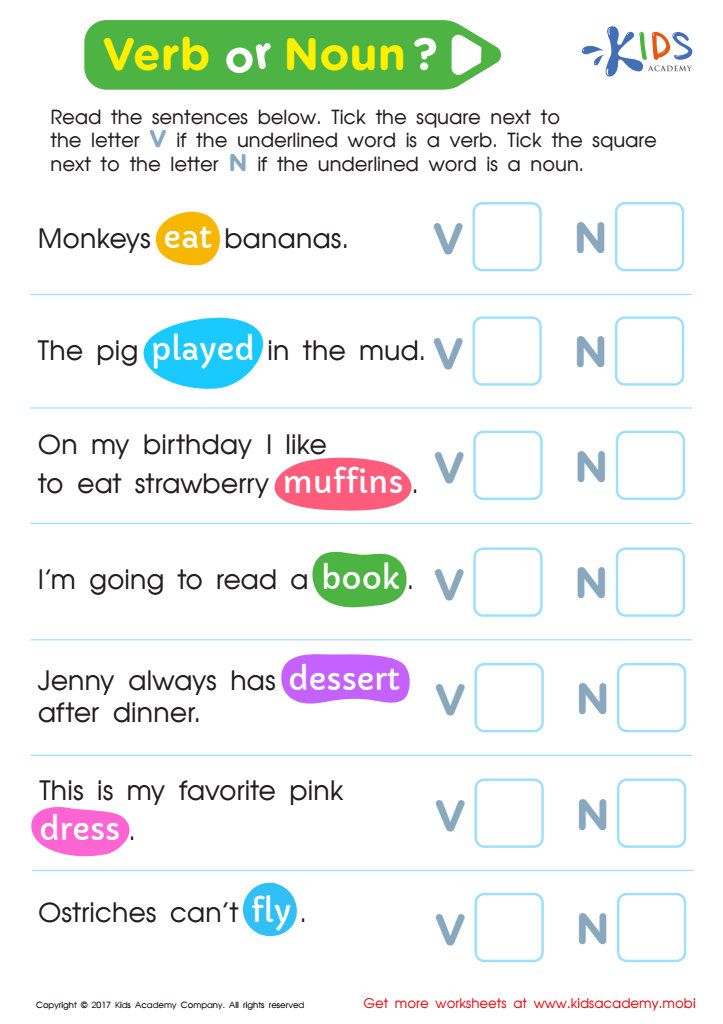

Verb or Noun Worksheet
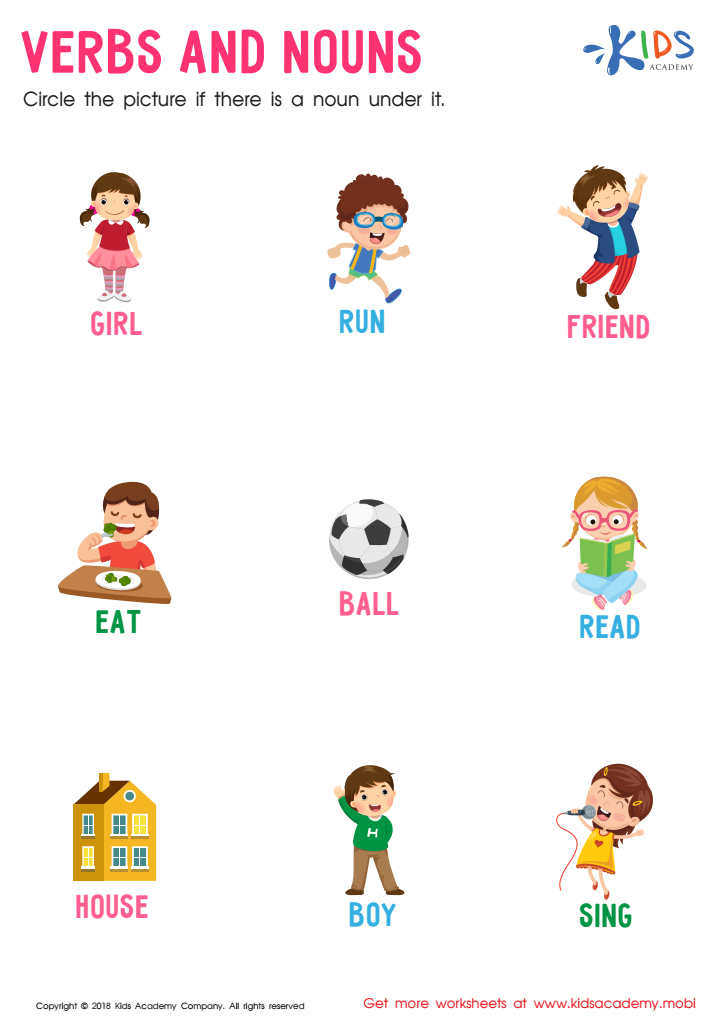

Verbs and Nouns Worksheet
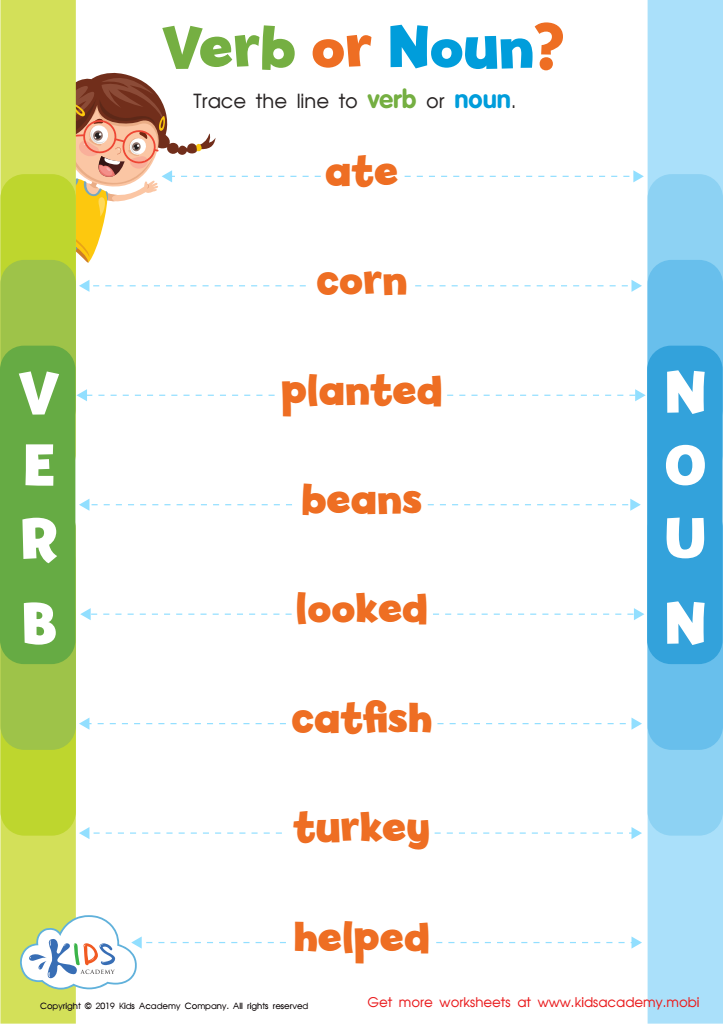

Verb or Roun Worksheet
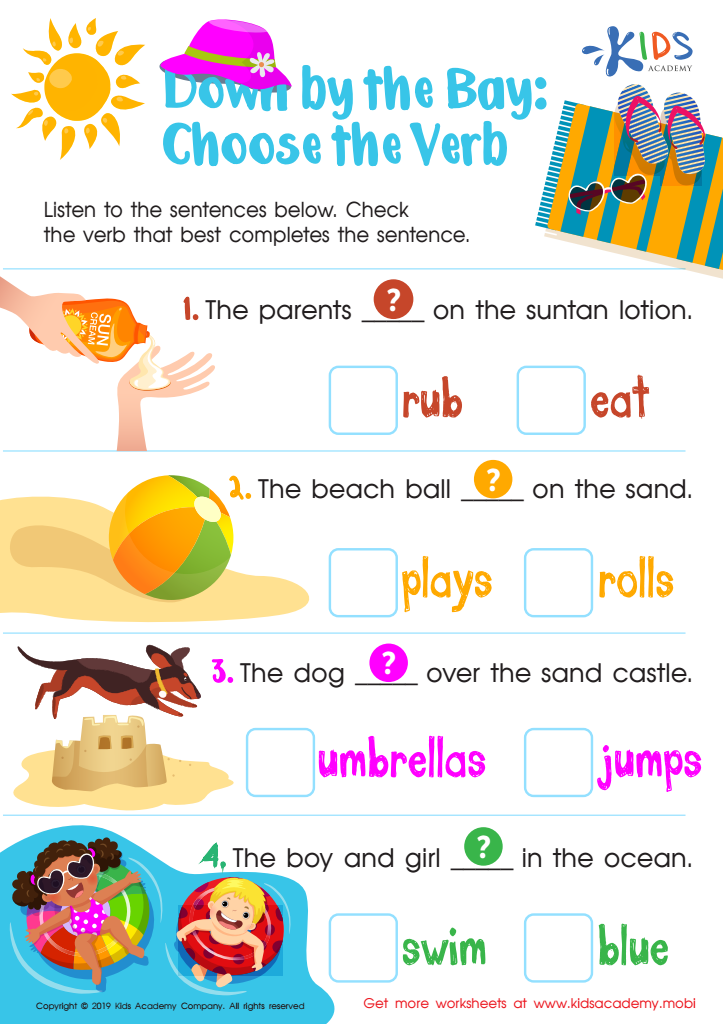

Down by the Bay: Choose the Verb Worksheet
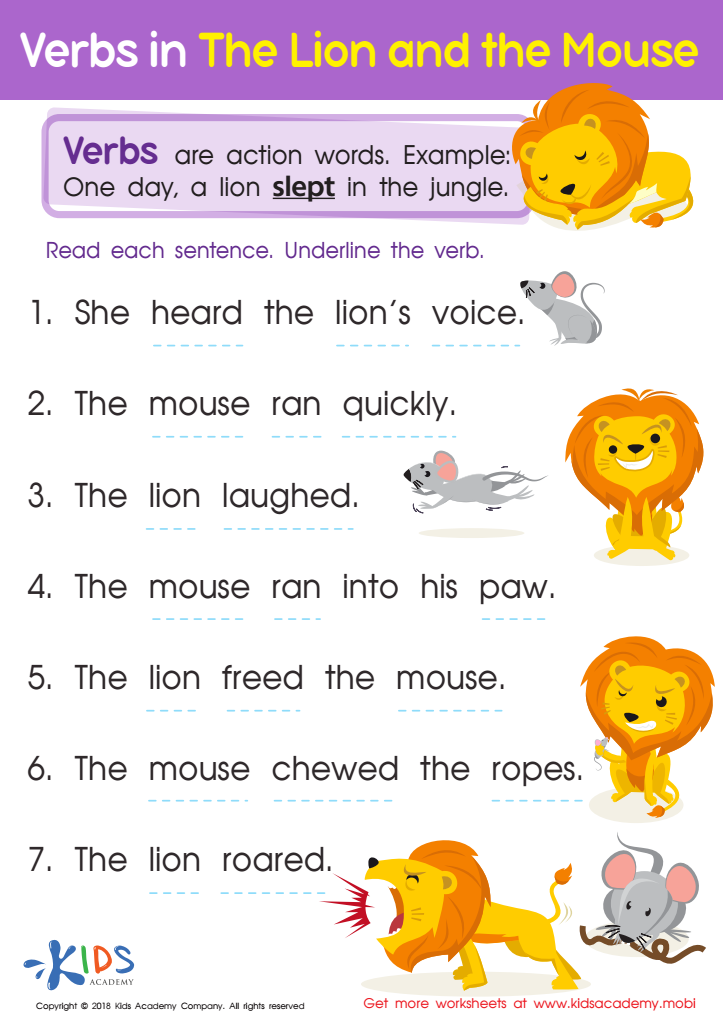

Verbs in The Lion and the Mouse Worksheet
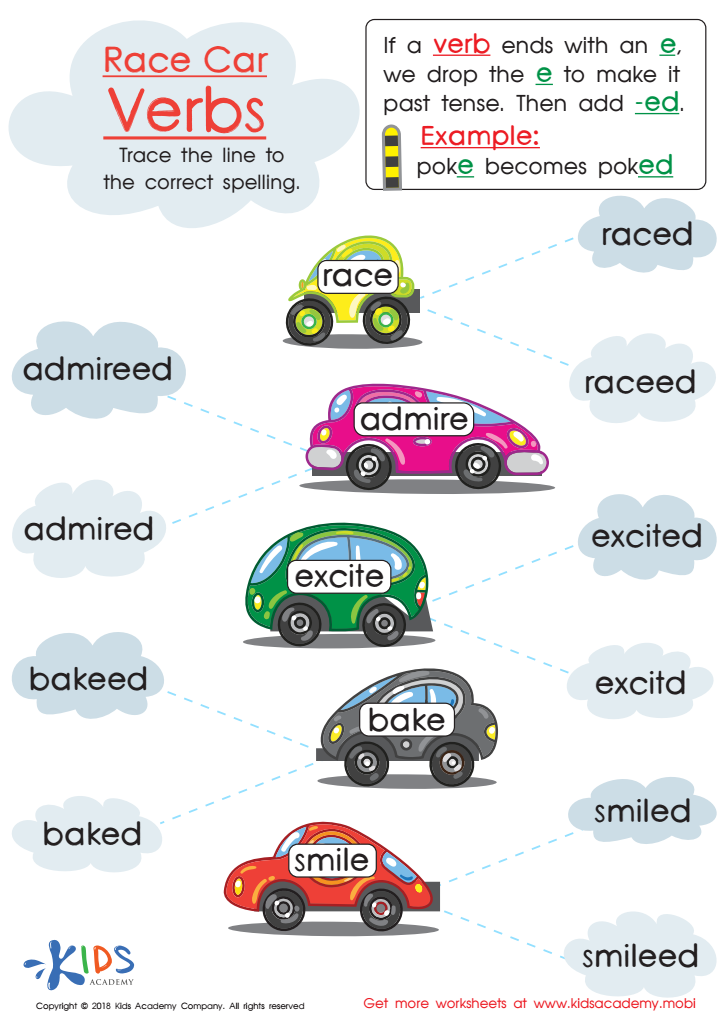

Race Car Verbs Worksheet
Verb identification is crucial for children aged 5-7 as it lays the foundational skills for effective communication, reading, and writing. At this developmental stage, understanding verbs allows children to describe actions and express their thoughts more clearly. Parents and teachers should prioritize verb identification because it enhances vocabulary acquisition and grammatical understanding, which are vital for literacy.
By recognizing verbs, children can better comprehend sentences, improve their reading fluency, and become more proficient writers. Verbs serve as action words that drive a narrative, making them essential for storytelling and comprehension. When children learn to identify verbs, they begin to grasp other parts of speech, which fosters a holistic understanding of language structure.
Additionally, engaging young learners in verb-related activities supports critical thinking and creativity. For example, action-based games and literature that highlight verbs can make learning fun and interactive. This interactive approach not only boosts engagement but also reinforces their learning in a meaningful context.
Ultimately, a strong grasp of verb identification empowers children to communicate effectively, boosting their confidence in both oral and written expression. Therefore, parents and teachers should actively support this essential part of language development in early literacy education.
 Assign to My Students
Assign to My Students





















